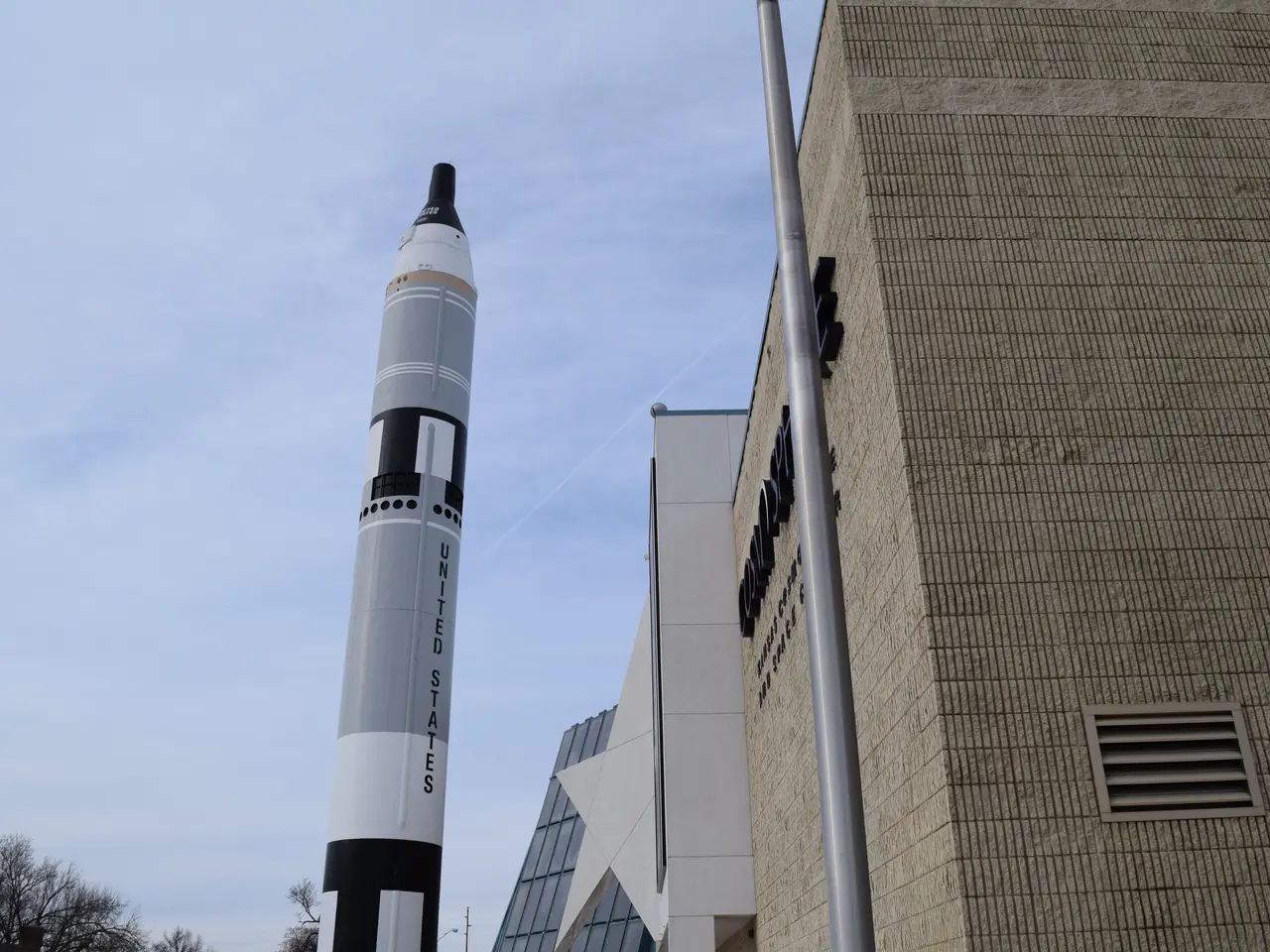Amazon set to debut Kuiper satellites on April 9, competing against SpaceX's Starlink in satellite internet market
Amazon is making significant strides in its ambitious Project Kuiper, a satellite constellation aimed at providing broadband internet to remote areas around the world. On April 9, the company is set to launch the first operational satellites for Project Kuiper from Cape Canaveral Space Force Station in Florida.
This launch, named KA-01 (Kuiper Atlas 1), will involve 27 satellites and will be streamed live on ULA's website. The second launch for Project Kuiper, KA-02, is yet to be scheduled. Both launches will utilize United Launch Alliance (ULA) rockets.
The first operational batch of 27 production satellites was successfully launched on April 28, 2022, during the KA-01 mission. Following this, additional launches have been carried out by SpaceX using Falcon 9 rockets, with one recent launch on August 10, 2022, deploying another 24 satellites.
Project Kuiper aims to deploy a total of 3,236 satellites in Low Earth Orbit (LEO) to establish a broadband internet mesh network. The constellation is planned to be deployed in phases, with about 80 launches expected. These launches will be carried out by various launch providers, including SpaceX, Arianespace's Ariane 6, Blue Origin's New Glenn, and United Launch Alliance's Atlas V and Vulcan Centaur.
Amazon has secured over 80 launch contracts from ULA, SpaceX, Arianespace, and Blue Origin (owned by Amazon founder Jeff Bezos) to help meet its deployment deadlines. The FCC license granted in July 2020 mandates that Amazon must have half of the constellation in orbit by July 2026 and complete the full deployment by July 2029. As of August 2022, approximately 102 satellites have been launched across four Falcon 9 missions.
The launch of these satellites follows the successful tests of two prototype satellites, KuiperSat-1 and KuiperSat-2, which were launched in late 2023. These tests validated key technologies like satellite-to-ground links, propulsion, and AWS ground integration, signifying an initial phase leading into service and beta testing phases. Amazon has not yet announced a date for the beginning of beta testing for its Kuiper broadband service.
Project Kuiper is a direct response to SpaceX's Starlink, which has already deployed over 7,000 satellites and serves more than 5 million customers. Amazon plans to begin beta testing of its Kuiper broadband service soon, with commercial service expected to roll out later this year. The company is continuing to ramp up production at its Kirkland, Washington facilities for subsequent launches.
Sources:
- SpaceNews
- TechCrunch
- Ars Technica
- Space.com
- CNBC
The satellite technology utilized in Amazon's Project Kuiper, including the attempt to launch the first operational satellites and subsequent launches by SpaceX, is a testament to the advancements in space-and-astronomy that enable broadband internet provision in remote areas. Amazon's Project Kuiper, along with SpaceX's Starlink, exemplifies the integration of science and technology to revolutionize internet accessibility worldwide.




